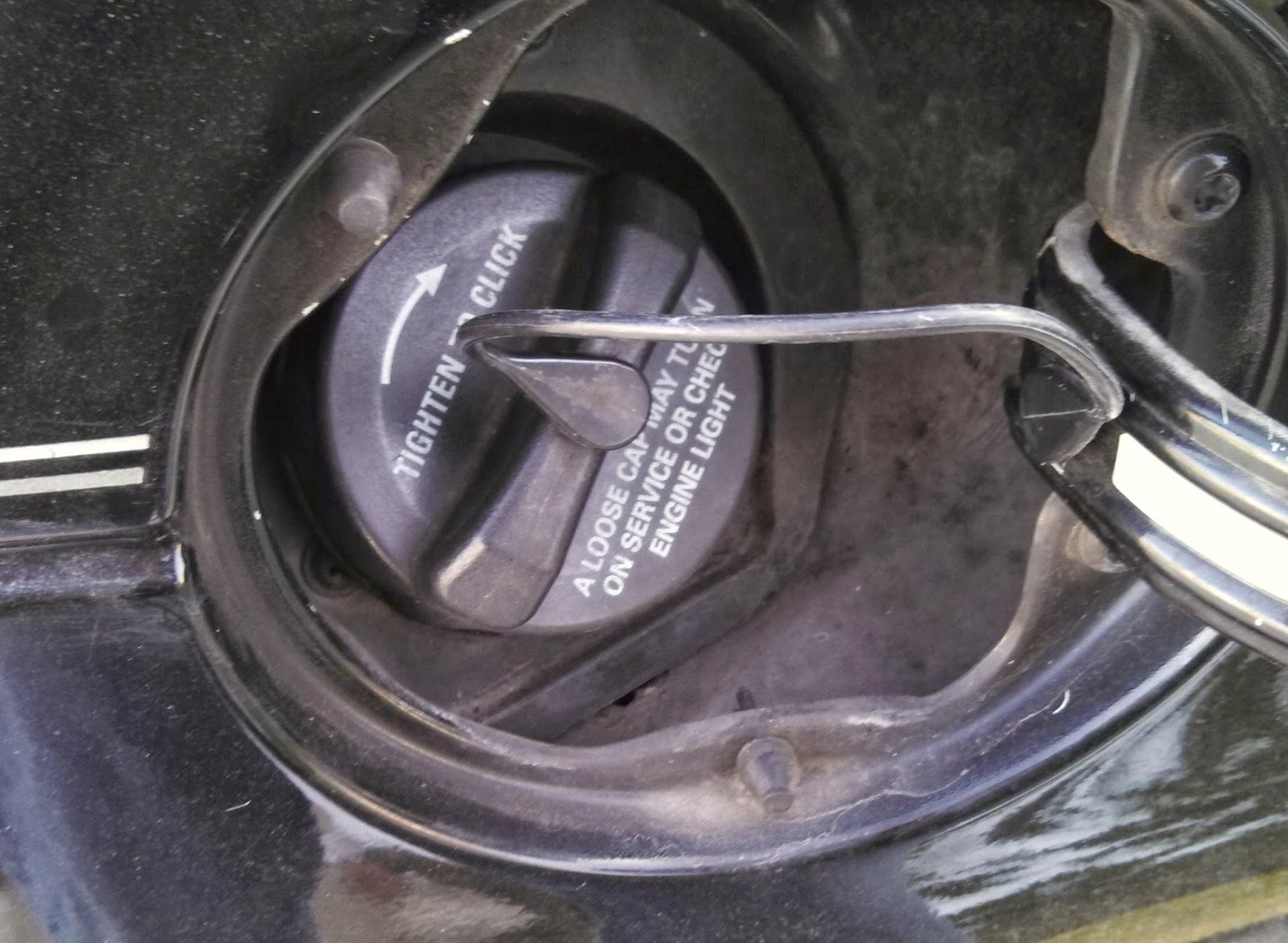That Pesky Check Engine Light? Your Gas Cap Might Be the Culprit!
Ever glanced at your dashboard and seen that ominous glow – the check engine light? Heart sinking, wallet groaning, you brace yourself for a hefty repair bill. But wait! Before you panic, consider a surprisingly common and often overlooked culprit: your humble gas cap.
It sounds almost too simple, right? Like a misplaced car key causing a frantic search. But a faulty gas cap can trigger a cascade of issues, leading to that dreaded illuminated warning. This seemingly insignificant component plays a vital role in maintaining your vehicle's emissions control system. A loose, damaged, or missing gas cap can allow fuel vapors to escape, disrupting the carefully calibrated balance and triggering the check engine light.
The history of the gas cap check engine light fix is intertwined with the evolution of emissions regulations. As environmental concerns grew, stricter controls were implemented to reduce harmful pollutants released by vehicles. The gas cap, a seemingly mundane part, became a critical component in this system. A properly sealed fuel system is essential for preventing fuel vapor leaks, which contribute to smog and air pollution.
The importance of addressing a gas cap-related check engine light issue goes beyond just silencing a warning light. It's about maintaining your vehicle's performance, fuel efficiency, and environmental responsibility. A leaky gas cap can lead to decreased fuel economy, as precious gasoline evaporates into the atmosphere. Moreover, it contributes to air pollution, impacting both the environment and public health.
So, how do you know if your gas cap is the culprit behind that glowing check engine light? First, the obvious: check your gas cap! Is it loose? Is it cracked? Is it even there? Sometimes, the fix is as simple as tightening the cap. However, if the cap is damaged, a replacement is necessary. Choosing the right gas cap for your car is crucial; using an incorrect one can defeat the purpose and continue to trigger the check engine light. Consult your owner's manual or an auto parts specialist to ensure you get the correct replacement.
If you’ve tightened or replaced the cap and the light persists, it's time for further diagnosis. A code reader can pinpoint the specific issue triggering the check engine light. Many auto parts stores offer free code reading services.
Benefits of addressing a gas cap-related check engine light include improved fuel economy, reduced emissions, and avoiding potentially more serious and costly repairs down the line.
Action Plan: 1. Check the gas cap. 2. Tighten or replace if necessary. 3. If the light persists, get the code read. 4. Address the underlying issue.
Checklist: Is the gas cap tight? Is the gas cap damaged? Is the correct gas cap being used?
Advantages and Disadvantages of Checking Your Gas Cap
| Advantages | Disadvantages |
|---|---|
| Saves money on potential repairs | May not solve the problem if the issue is not the gas cap |
| Easy to check and fix | Requires purchasing a new gas cap if damaged |
Best Practices: 1. Always tighten your gas cap until you hear a click. 2. Inspect your gas cap regularly for cracks or damage. 3. Avoid overtightening the cap, as this can damage the threads. 4. Replace a lost or damaged cap promptly. 5. If you frequently fuel up at different gas stations, double-check the cap after each fill-up.
FAQ: 1. Can a loose gas cap damage my car? Potentially, yes, as it can affect the emissions system. 2. How long does it take for the check engine light to reset after fixing the gas cap? It can vary, sometimes immediately, sometimes after several driving cycles. 3. What if the light doesn't go off? Further diagnosis is needed. 4. Can I drive with a loose gas cap? It's best to avoid it to prevent fuel evaporation and potential damage. 5. How much does a gas cap cost? They are relatively inexpensive, usually under $20. 6. Where can I buy a gas cap? Auto parts stores, online retailers, and sometimes even gas stations. 7. Can I reset the check engine light myself? Yes, by disconnecting the battery or using a code reader, but if the issue persists, the light will return. 8. What does a P0440 code mean? This code often indicates an evaporative emission system leak, which could be caused by a loose or faulty gas cap.
Tips & Tricks: Mark your gas cap with a bright sticker or paint to make it easier to spot if you accidentally leave it on top of your car. Keep a spare gas cap in your trunk for emergencies.
In conclusion, the humble gas cap plays a crucial role in your car's emissions system and fuel efficiency. A loose, damaged, or missing gas cap can trigger the dreaded check engine light and lead to increased emissions, reduced fuel economy, and potential damage to your vehicle. By understanding the importance of a properly functioning gas cap, regularly checking and maintaining it, and addressing any related check engine light issues promptly, you can save money, protect the environment, and keep your vehicle running smoothly. Don't underestimate the power of this small but vital component – a simple check can save you a lot of trouble down the road. So next time that check engine light illuminates, take a deep breath, check that gas cap, and you might just find a quick, easy, and inexpensive solution to your automotive woes. Don't delay; address the issue now and enjoy the benefits of a properly functioning and environmentally friendly vehicle.
The enigmatic allure of a pink hermit hermitage hotel fact or fantasy
Sending starbucks gift cards by email made easy
Steve hunter celina oh














